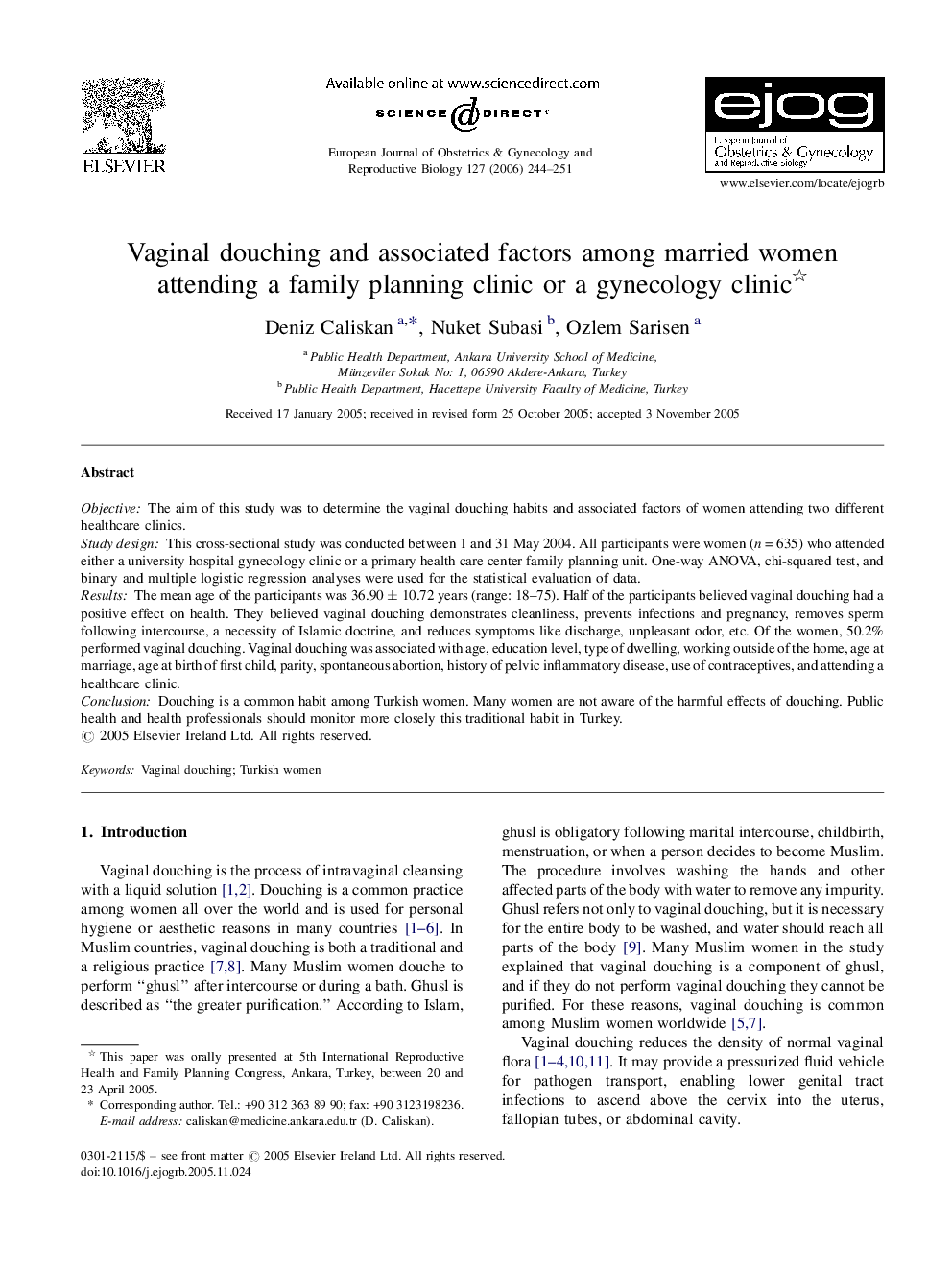| Article ID | Journal | Published Year | Pages | File Type |
|---|---|---|---|---|
| 3921901 | European Journal of Obstetrics & Gynecology and Reproductive Biology | 2006 | 8 Pages |
ObjectiveThe aim of this study was to determine the vaginal douching habits and associated factors of women attending two different healthcare clinics.Study designThis cross-sectional study was conducted between 1 and 31 May 2004. All participants were women (n = 635) who attended either a university hospital gynecology clinic or a primary health care center family planning unit. One-way ANOVA, chi-squared test, and binary and multiple logistic regression analyses were used for the statistical evaluation of data.ResultsThe mean age of the participants was 36.90 ± 10.72 years (range: 18–75). Half of the participants believed vaginal douching had a positive effect on health. They believed vaginal douching demonstrates cleanliness, prevents infections and pregnancy, removes sperm following intercourse, a necessity of Islamic doctrine, and reduces symptoms like discharge, unpleasant odor, etc. Of the women, 50.2% performed vaginal douching. Vaginal douching was associated with age, education level, type of dwelling, working outside of the home, age at marriage, age at birth of first child, parity, spontaneous abortion, history of pelvic inflammatory disease, use of contraceptives, and attending a healthcare clinic.ConclusionDouching is a common habit among Turkish women. Many women are not aware of the harmful effects of douching. Public health and health professionals should monitor more closely this traditional habit in Turkey.
